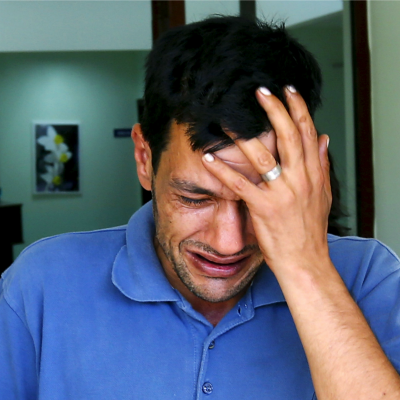The father of drowned Syrian toddler Aylan Kurdi was working with smugglers and driving the flimsy boat that capsized trying to reach Greece, other passengers on board said, in an account that disputes the version he gave last week.
Ahmed Hadi Jawwad and his wife, Iraqis who lost their 11-year-old daughter and 9-year-old son in the crossing, said that Abdullah Kurdi panicked and accelerated when a wave hit the boat, raising questions about his claim that somebody else was driving the boat. A third passenger confirmed their version of events, which could not independently verify. “The story that (Aylan’s father) told is untrue. I don’t know what made him lie, maybe fear,” Jawwad said in Baghdad at his in-laws’ house on Friday. “He was the driver from the very beginning until the boat sank.”
He said Kurdi swam to them and begged them to cover up his true role in the incident. His wife confirmed the details. Jawwad said his point of contact with the smugglers was called Abu Hussein. “Abu Hussein told me that he (Kurdi) was the one who organised this trip,” he said. Reuters tried several times to speak to Kurdi by telephone from the Syrian city of Kobane but was unable to reach him. Abu Hussein also could not be reached. However, Kurdi told Britain’s MailOnline that the accusations were untrue. “I thought about driving the boat but I didn’t do it. That is all lies,” he said. “This is not true. If I was a people smuggler, why would I put my family in the same boat as the other people? I paid the same amount to the people smugglers,” he told the newspaper.
In comments to Kurdish news outlet Rudaw this week, Kurdi blamed a Turkish smuggler but did not name him. Amir Haider, 22, another Iraqi who said he was on the same boat, confirmed Jawwad’s account and identified Kurdi as the driver. He said by telephone from Istanbul that he initially thought Kurdi was Turkish because he was not speaking, but later heard him talking to his wife in Syrian Arabic.
A photo of Aylan Kurdi’s body in the surf off a popular Turkish holiday resort prompted sympathy and outrage at the perceived inaction of developed nations in helping thousands of refugees using dangerous sea-routes to reach Europe, many of whom have fled Syria’s four-year civil war.








